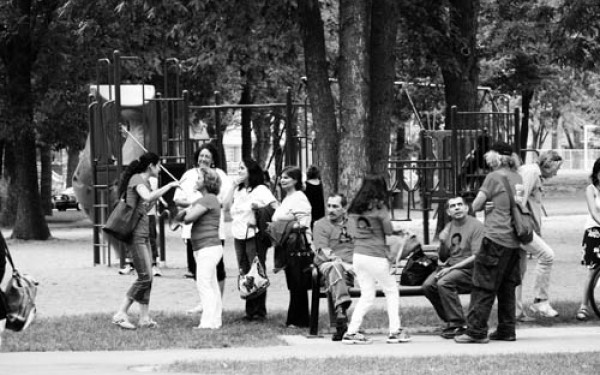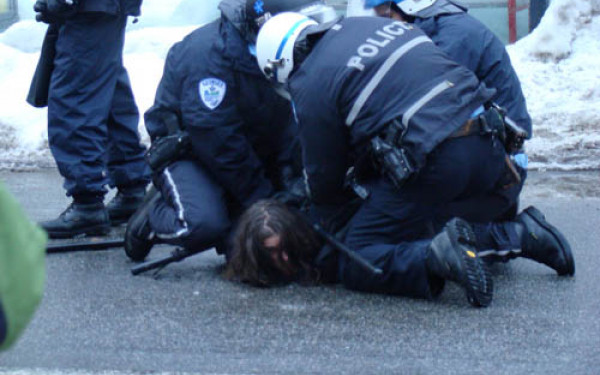Journalists Meet With Police To Discuss Treatment Of Reporters
Following a closed meeting between local journalists and Montreal police, a press conference was held Monday morning addressing police conduct towards reporters covering student demonstrations.
“This meeting is the start of an ongoing conversation we plan to hold with the police,” said Tom Henheffer, Executive Director of Canadian Journalists for Free Expression (CJFE).
“We also know there are expected to be many more protests this fall, and in order to hold all parties accountable,” he continued. “[We] are exploring options to create some human rights monitors with other organizations, who will be on the ground to hold both police and journalists accountable.”
Henheffer moderated the closed meeting between police spokesperson, Ian Lafreniere. The press conference followed at Place Des Arts on Monday.
The initiative began last spring, when anti-austerity demonstrations in the city started heating up.
Matt D’Amours, a reporter for both 99Media and The Link, helped draw the journalists and police together to commence constructive dialogue on the issue.
“Obviously, as journalists, we were all over these events, writing, photographing, live streaming—you name it. And we began to realize that independents, students and alternative journalists were having a really rough time out there,” D’Amours said.
“Being denied access to film, being intimidated and threatened, and in some cases, being outright assaulted by police,” he continued.
To counter police tactics, D’Amours said they compiled testimonials and video evidence to present to Montreal police in a meeting.
Although police mistreatment of journalists is not a new phenomenon, the issue became apparent during the 2012 student protests, according to Henheffer.
Numerous and questionable instances of police mistreating journalists are not specific to alternative and student journalists, but to mainstream reporters as well, he said.
An example he gave is when a police officer assaulted Jacques Nadeau, a photographer from Le Devoir, in 2012.
During the closed meeting, police agreed to recognize independent media, and to write up a set of “ground rules” for journalists to follow. The rules will then be passed down to their officers so that they will be aware of how to identify journalists.
“The identification will not be based on certification, but it will be based on the behaviour,” Henheffer said. “So people who are acting like professional journalists will be treated like professional journalists.”
One of the main issues with independent media coverage of protests is when reporters get too involved in demonstrations, he said.
“What it comes down to is behaving professionally and being an independent, neutral observer of the protest, as opposed to taking part in the protests.”The meeting marked the beginning of a dialogue that aims to address the complicated relationship between police and journalists. Reporters who were present for the exchange expressed their optimism looking forward.
“I don’t think the SPVM is deliberately targeting journalists, I think that this is all a matter of misunderstanding that can be, with open minds, communication and a mutual respect, that can be vastly improved,” Henheffer said.
“We hope that that will happen in the next round of protests, but once again, that will remain to be seen.”

_820_551_90.jpg)




